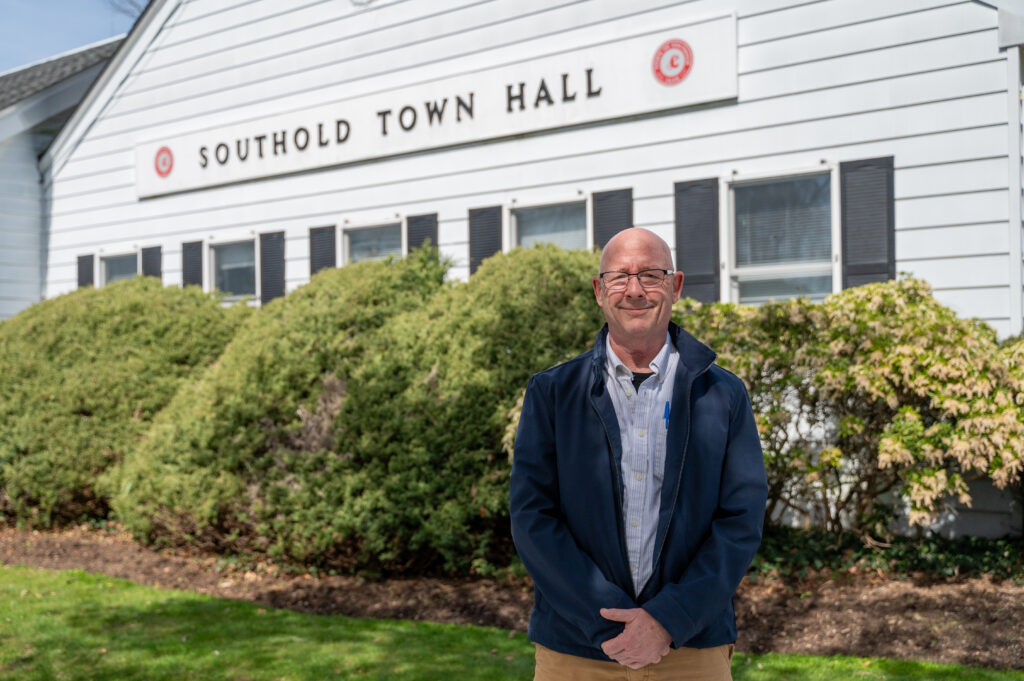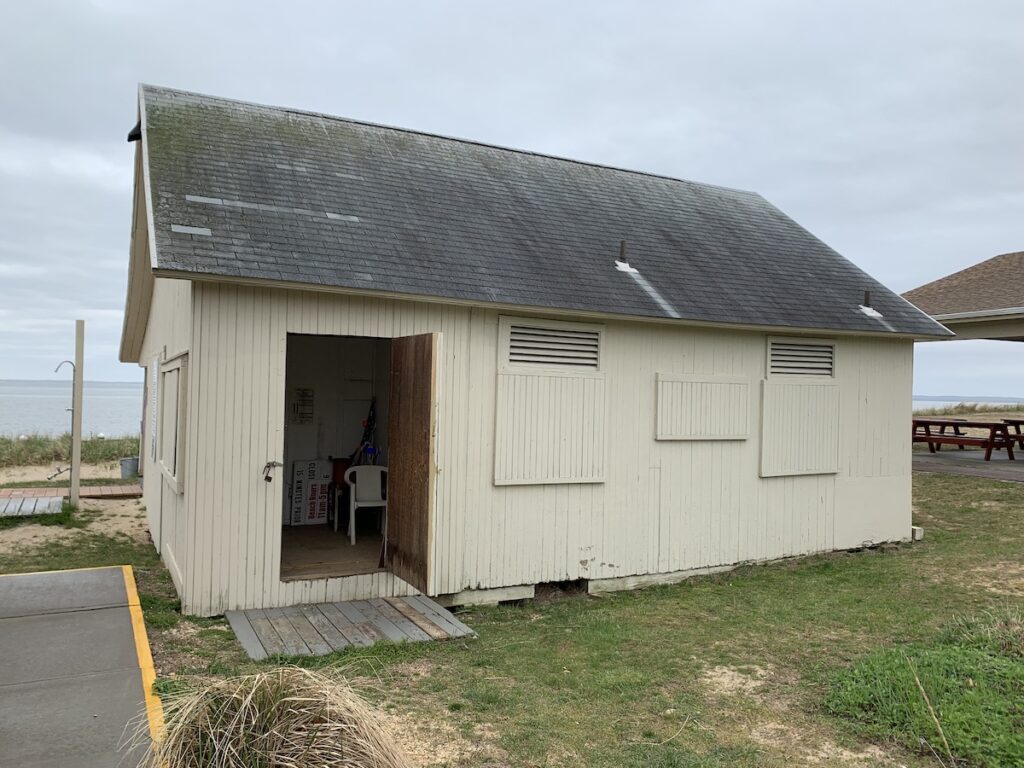Residents worry New Suffolk parking proposal is too restrictive

With several competing interests for parking in the hamlet of New Suffolk, officials are finding it difficult to strike a balance as they work on solutions before summer gets underway.
Town Board members met with residents of the hamlet and consultants from AKRF who prepared the parking study to discuss updated recommendations Tuesday.
A modified list of proposed parking regulations was presented in response to comments received during a similar meeting in December, where residents explained that an influx of visitors have been parking on residential streets in the hamlet and walking to the town beach.
Matt Carmody of AKRF agreed that improved management of the beach could help solve other problems.
“That’s the root of all the parking issues,” he said Tuesday.
In addition to better beach policies, consultants are recommending the town add regulations for a dedicated parking area near the New Suffolk Common School and timed parking areas ranging from 15 minutes to 3 hours in the business district. Parking would be unrestricted along the south side of King Street as well as a portion of Main and Second streets but seasonally and much of the available parking in the surrounding residential neighborhood would be limited to town resident permit only.
Diane and Dennis Harkoff, who own Legends restaurant, worry the proposed restrictions could negatively impact their business and leave their employees, whose shifts can range from eight to twelve hours, with nowhere to park.
“Our parking keeps getting more restricted,” Ms. Harkoff said.
But Mr. Carmody said the three-hour parking, which would be located along First Street, is meant to promote turnover. “Because there are no restrictions [on First Street,] it penalizes Legends and the other businesses because people park for the beach there all day long,” he said. “We’re trying to free up the commercial block.”
Town officials say last summer’s pandemic-related restrictions helped with beach management since access was limited to town residents only and snow fencing helped curb access at other points aside from the town booth.
This summer, the town may continue the resident-only restriction at New Suffolk Beach and hire more traffic control officers and beach attendants to help with enforcement.
But Arlene Castellano of New Suffolk said last year’s test run failed. She was one of several residents who spoke about the need to supplement the town’s beach attendants, who are typically teenagers, with adults to deal with confrontational situations that arose. “People walked right past them. The beach was more crowded than ever last summer,” Ms. Castellano said.
Nonresidents also spilled over onto road-end beaches, officials said.
Ms. Castellano said the only way to control beach congestion and traffic issues is through parking restrictions. “The businesses have been taken care of and given great consideration, but all the residents in New Suffolk have to be given the same consideration.”
The restrictions, though, could come with a cost to residents, since the proposal would seasonally limit street parking along residential streets to those with town permits only.
That would mean guests visiting someone in New Suffolk wouldn’t be able to park on the street.
“I think that’s overly restrictive,” said resident Rob Eisenstat. “People should be able to have guests. It seems ridiculous.”
Mr. Eisenstat and others said a visitor or guest parking permit could help alleviate that concern—but town supervisor Scott Russell said that’s not legally permissible.
“If you’re going to establish a regulatory scheme for a public space, everybody has to live by it,” he said.
Deputy supervisor Jill Doherty, who led Tuesday’s meeting, said the plan presented was just for discussion and isn’t ready to implement.
“We’ve been working on this for years. We’re just trying to really figure out what would work and won’t work,” she said.








